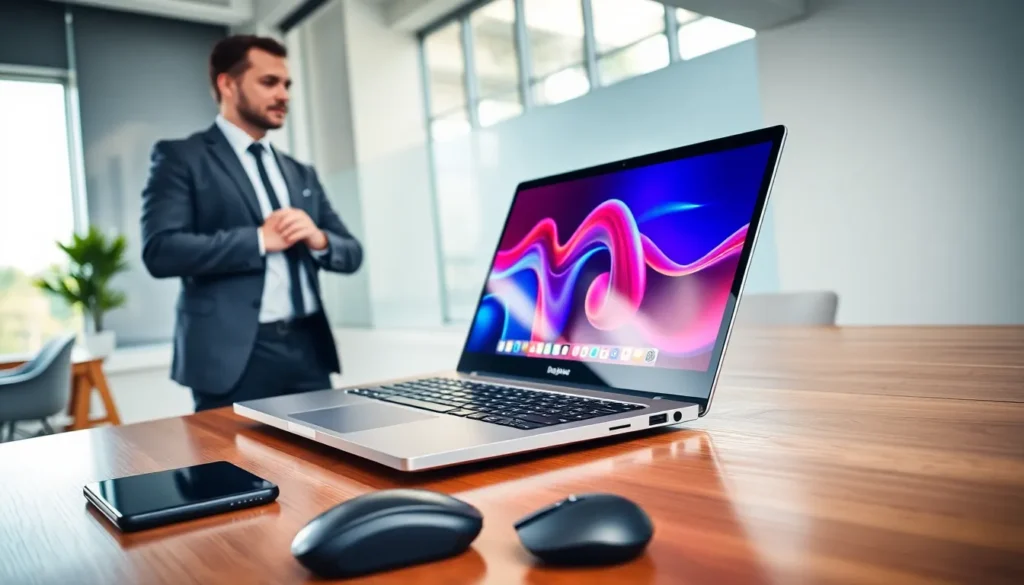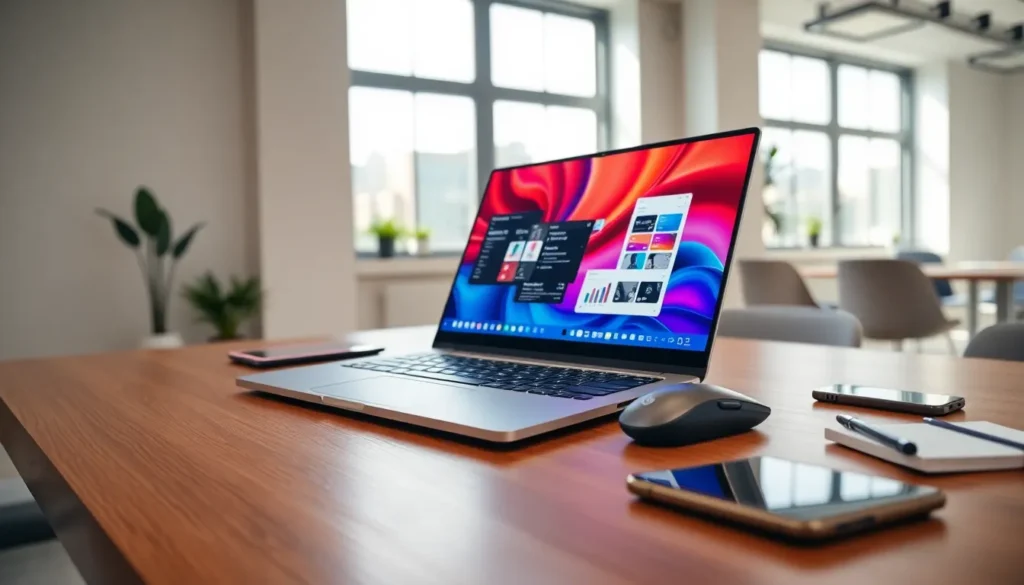Table of Contents
ToggleIn a world where laptops have ingrained themselves into daily life like your morning coffee, finding the right one can feel as tricky as navigating a maze blindfolded. You might be wondering, ‘Do I need a powerhouse for gaming, or is a lightweight device for browsing enough for my Netflix binge sessions?’ Fear not. This guide will unravel the mystery behind choosing the perfect laptop, regardless of whether you’re a student, a professional, or someone who just wants to play a few games on the side.
Understanding Your Laptop Needs

When it comes to laptops, personal needs stand at the forefront of the decision-making process. Identifying Your Purpose is essential. Is this laptop merely a tool for attending virtual meetings and writing the next great novel? Or will it be the gaming rig that keeps your friends awake during late-night sessions?
Assessing User Experience also plays a massive role. Casual users might find that a basic model suffices, while those deeply entrenched in advanced tasks, such as graphic design or programming, require robust specifications.
Also, mobility should not be overlooked. For students or those commuting, a lightweight laptop with a slim profile may be necessary. But, a desktop alternative may work best for a stationary user, offering enhanced performance without the constraints of portability.
Types of Laptops Available
Diving into the types of laptops on the market is like walking into a candy store, you might not know where to start.
Ultrabooks are slim, lightweight, and designed for those who prioritize portability without sacrificing performance. Perfect for travelers and professionals on the go. Then, you have gaming laptops. These powerhouses are equipped with high-end graphics and processing capabilities. Ideal for gamers who need to experience every pixel in stunning detail.
For those seeking a balance, 2-in-1 laptops combine the functionalities of a laptop and tablet. Great for multitaskers. Chromebooks represent a budget-friendly option, making them popular among students and casual browsers. They run on Chrome OS and are excellent for online tasks, provided users are comfortable with limited offline functionality. Finally, there’s the sturdy business laptop, designed to handle enterprise-grade tasks while offering durability for daily use. Each of these categories has unique strengths, catering to various needs.
Key Features to Consider When Buying a Laptop
Features play a pivotal role in laptop selection. First up is the processor. The choice between Intel and AMD depends greatly on your use case. Intel chips often lead in single-core performance, perfect for daily tasks, while AMD shines in multitasking scenarios.
Storage options, whether HDD or SSD, will also influence your experience. SSDs offer blazing fast boot times, while HDDs deliver large amounts of storage at a lower price point. Asking which fits your needs is crucial.
Another important aspect is RAM. More RAM equates to the ability to run multiple applications simultaneously. A minimum of 8GB is recommended for most users, with 16GB being ideal for demanding tasks. Don’t forget about the screen resolution and size: higher resolutions provide crisper images, which is especially important for creative work. Finally, consider battery life. A laptop is only as good as its ability to last through long work sessions or transcontinental flights.
Budgeting for Your Laptop Purchase
Budgeting can be a sticking point for many buyers. The first step is determining how much one is willing to spend. Laptops can range from a few hundred to several thousand dollars, so solid financial planning is essential.
You don’t want to skimp and end up with a device that can’t keep up with your needs. On average, a decent laptop suitable for basic tasks can be acquired for about $500 to $800. Mid-range models offering enhanced performance fall in the $800 to $1,500 range, while high-end laptops designed for gamers or professionals may exceed $1,500.
Keep in mind that while going for the cheapest option might be tempting, investing in a quality laptop often pays off in longevity and performance. Plus, consider available warranties and support plans to protect your investment from mishaps down the road.
Where to Buy Laptops: Retailers and Online Options
When it comes to purchasing, buyers have a multitude of options. Retail giants like Best Buy and Walmart provide the advantage of being able to see and touch the laptop before committing, an experience that can ease the decision-making process.
But, purchasing online usually offers a broader selection and potentially better prices. Websites like Amazon, Newegg, and manufacturer sites like Dell and HP often feature exclusive deals. Shopping during sales events, such as Black Friday or back-to-school discounts, can yield substantial savings.
Refurbished laptops offer another alternative, providing significant cost drops while still maintaining quality, making them an excellent choice for budget-conscious consumers. Whichever route one chooses, it’s critical to research and compare different retailers and prices to score the best deal.
Caring for Your Laptop: Maintenance Tips
Once you make your purchase, proper care is paramount. Regular cleaning is essential to prevent dust build-up, which can lead to overheating. Make it a habit to wipe the keyboard, screen, and vents periodically.
Managing software updates is another essential task. Keeping your operating system and applications updated ensures optimal performance and security. Don’t ignore prompts to update software, these are safeguards against vulnerabilities.
In terms of hardware, consider investing in a quality laptop case. This simple accessory can prevent damage during travel, protecting vital components from drops or spills. Finally, be mindful of temperature. Using the laptop on soft surfaces like beds or couches can block ventilation, so opt for a hard surface whenever possible.




